Vitamin D3 3000 IU
- With 75 micrograms of cholecalciferol
- In the best biologically available form
- Vitamin D contributes to the maintenance of the immune system
Description

What is Vitamin D?
Cholecalciferol is the form of vitamin D produced by humans in the skin under the influence of (ultraviolet) sunlight. Cholecalciferol is then converted into the metabolite calcidiol in the body and subsequently into the biologically active hormone calcitriol.
The Vitamin D 3000 IU 180 and 365 capsules from Kala Health contain 75 mcg of vitamin D3 (cholecalciferol) expressed as 3000 IU (international units), derived from sheep wool fat. This dosage is particularly suitable for situations where there is an increased need for vitamin D, such as during the winter months. Interested in ordering Kala Health’s Vitamin D? See the product above!
Vitamin D need
Optimal vitamin D blood values
According to an official guideline, the optimal vitamin D level should be 30 nanomoles per liter of blood (nmol/l), and from the age of 70, it should be 50 nmol/l. However, there is increasing evidence that these values are on the low side. Nowadays, many vitamin D experts advocate for an optimal vitamin D level of at least 75 nmol/l for everyone.
It is a fact that the vitamin D level in many people drops to 20 – 50 nmol/l outside the summer months, and sometimes even lower. A sensible approach is therefore to regularly test the vitamin D level in the blood. A second recommendation is to take vitamin D as a dietary supplement outside the summer months to maintain the vitamin D level in the blood.
How much vitamin D should one take daily? That is a very relevant question with not a simple answer, as each individual is unique. However, there are general guidelines to follow:
- With a starting value of 20 nmol/l, an adult in the West needs 100 mcg (4000 IU) daily to reach a blood level of 75 nmol/l after a month.
- With a starting value of 50 nmol/l, an adult in the West needs 50 mcg (2000 IU) daily to reach a blood level of 75 nmol/l after a month.
- After reaching a blood level of 75 nmol/l, an adult in the West needs 25 – 50 mg (1000 – 2000 IU) daily to maintain this value.
Please note, these are general guidelines. It is recommended to have the vitamin D level in the blood checked every 3 – 6 months and adjust the daily dosage accordingly.
Vitamin supplements as a solution
A sensible approach to maintaining vitamin D levels in the blood is to take vitamin D supplements outside the summer months. How many supplements you should take exactly? That’s a good question with no simple answer, as each individual is unique. Therefore, it is advisable to have your vitamin D level in the blood checked every three to six months and adjust the daily dose accordingly.
Vitamin D: Immunity and Protection
It is known that vitamin D receptors are present in more than 30 different types of tissues and organs, including immune cells, muscles, and bones. This means that vitamin D has a wide range of functions and supports health in various ways. Recently, much attention has been given to the role of vitamin D in the immune system. It turns out that almost all cells of the immune system have receptors for vitamin D, including monocytes, B lymphocytes, T lymphocytes, white blood cells, macrophages, and dendritic cells. In addition, vitamin D receptors have been found in the epithelial cells of the lungs.
Health claims permitted by the Health Council
The body does not just produce large amounts of vitamin D under the influence of sunlight; this vitamin D is crucial and is used by the body for a multitude of essential metabolic processes. Based on this, the EU has approved the following scientifically proven health claims:
- Vitamin D contributes to the maintenance of the immune system.
- Vitamin D contributes to the maintenance of normal bones and teeth.
- Vitamin D contributes to the maintenance of normal muscles.
- Vitamin D plays a role in the process of cell division.
Attention, emphasized note:
Due to legal restrictions, not all details about this dietary supplement can be provided. However, for further inquiries, we can be reached at (+31) (0)70 345-0290.
Composition
Vitamin D3 contains the following ingredient:
Ingredients
| Composition per capsule (daily dose): | %RI* | |
|---|---|---|
| Vitamin D3 | 75 mcg | 1500 % |
*RI = Reference intake
Ingredients: Vitamin D3 (Cholecalciferol 3000 IU) 75 mcg.
Other ingredients: Bulking agent (virgin olive oil), Gelling agent (beef gelatine), Humectants (glycerin, water).
Guaranteed free from: Preservatives, synthetic fragrances, colors, and flavors.
Use & dosage
Recommended use
| For Who? | Daily Dosage |
|---|---|
| Adults: | 1 capsule per day |
Daily dosage: Adults 1 capsule per day or as recommended. Preferably take during a meal. Observe the (recommended) daily dosage.
Mandatory statement: A dietary supplement does not replace a varied diet. A varied, balanced diet, and a healthy lifestyle are important. This product is a dietary supplement (contains vitamins).
Safety
- Consult a professional before using dietary supplements during pregnancy, breastfeeding, medication intake, and illness.
- This dietary supplement is not suitable for children up to and including ten years of age.
Storage advice
Storage: Store in a dry place at room temperature and out of reach of small children.



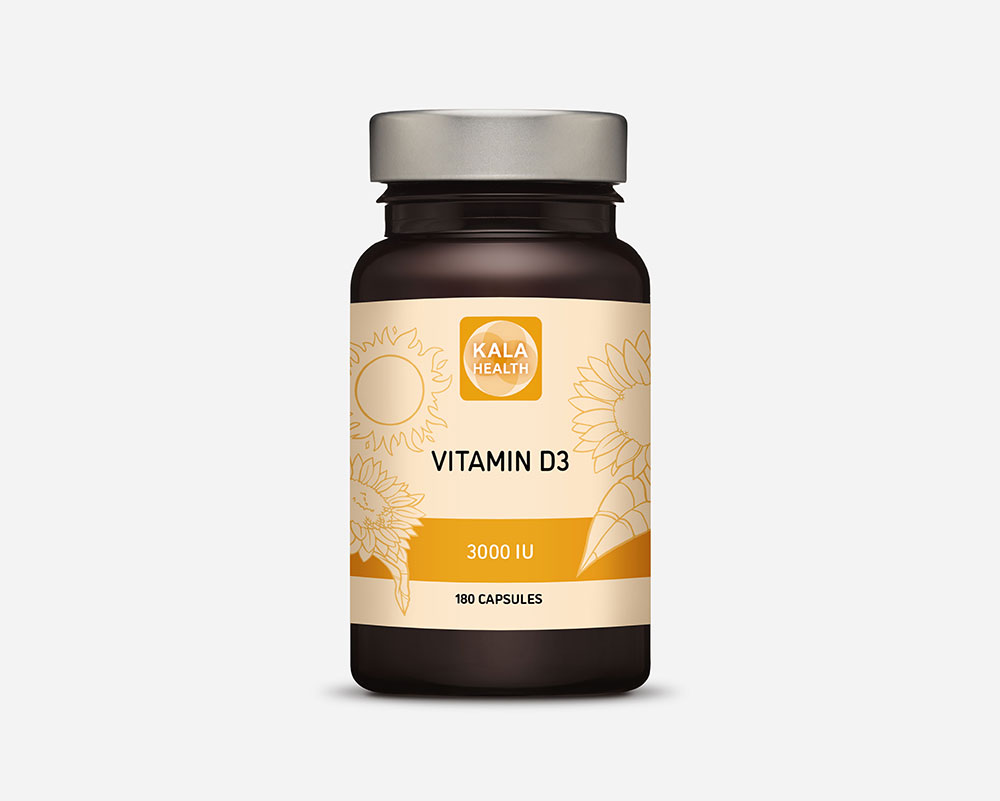
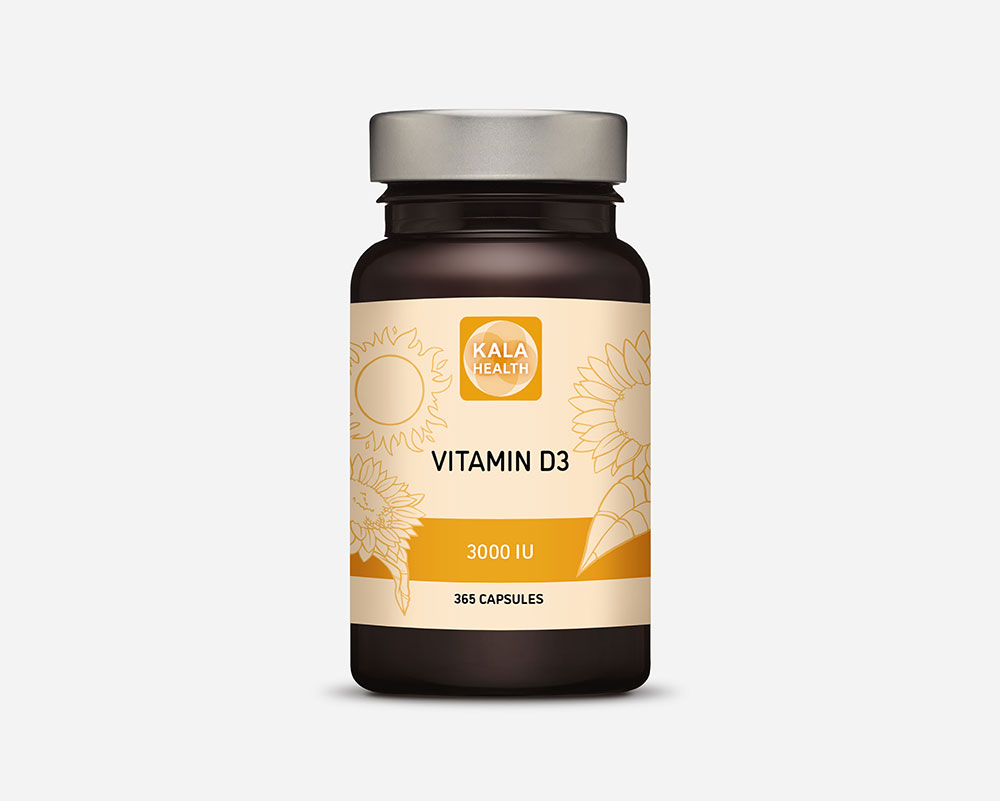

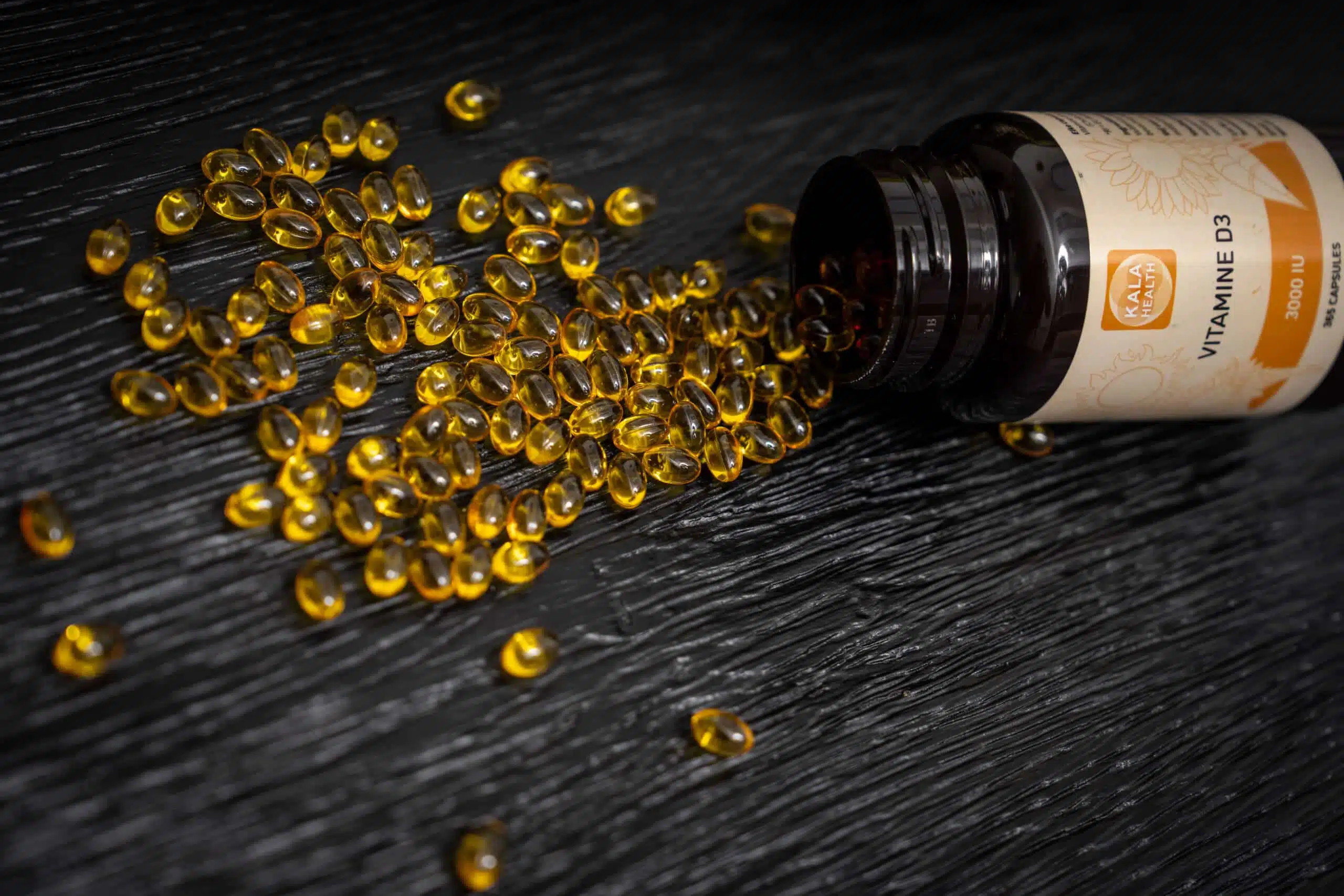
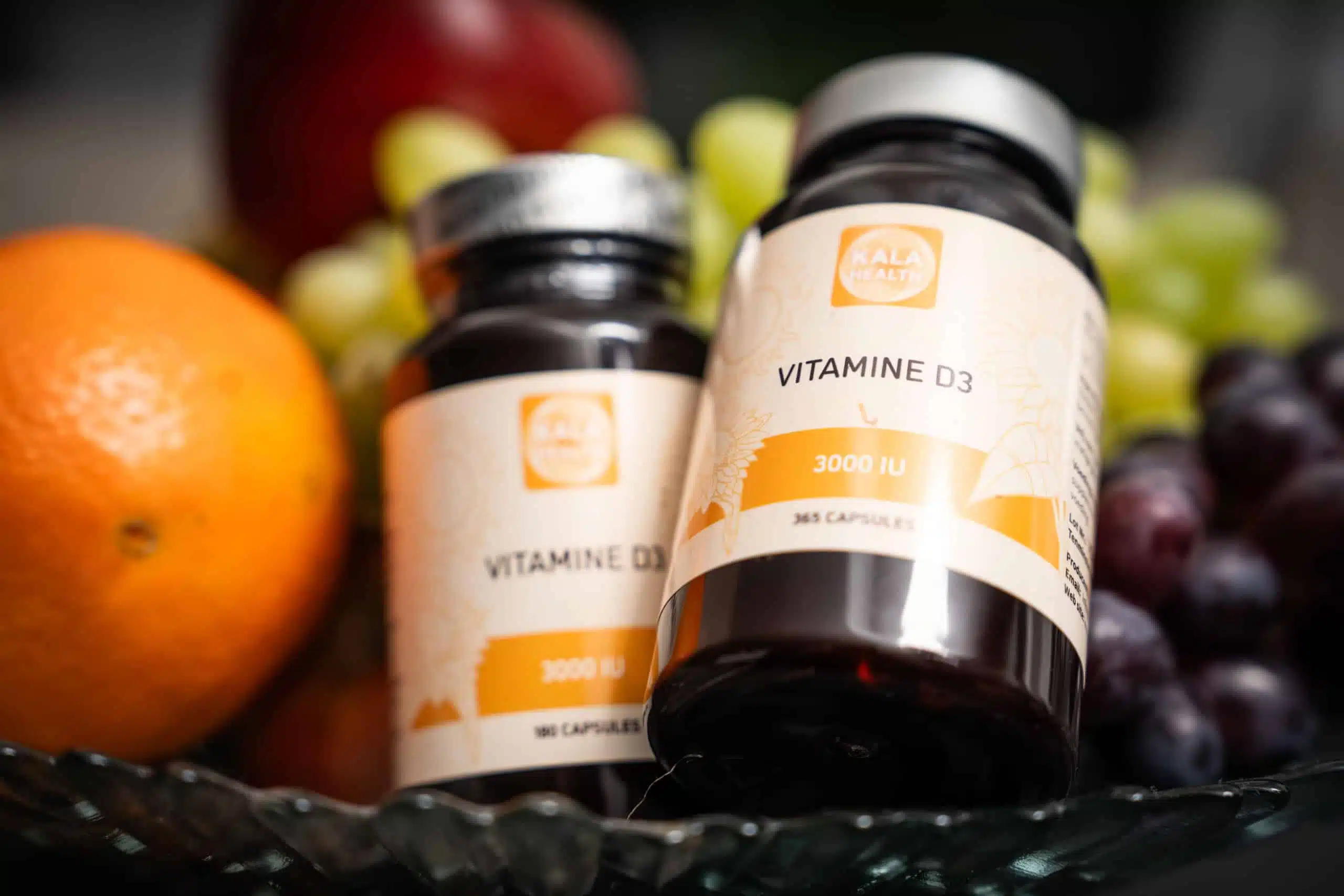




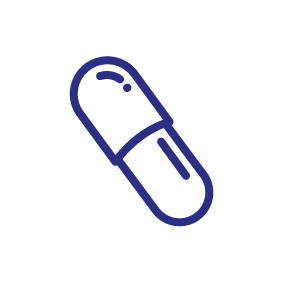 60 or 180 capsules
60 or 180 capsules
 60 or 180 softgels
60 or 180 softgels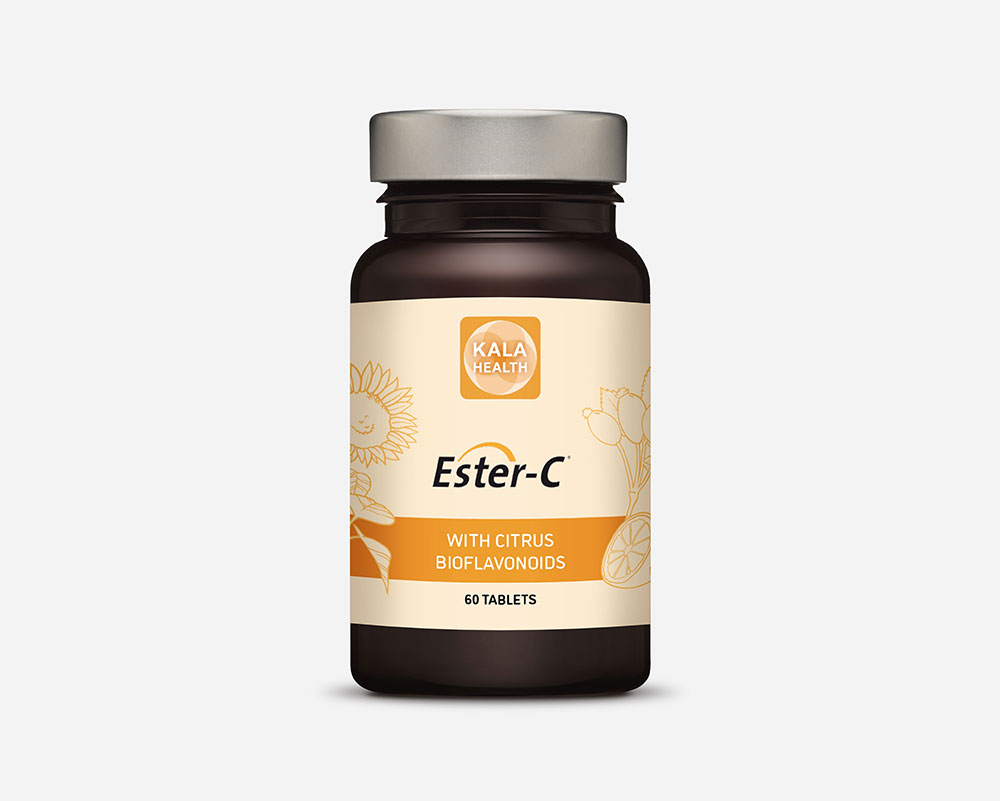
 60 or 180 tablets
60 or 180 tablets